99X 25 years later: how it all began and why it mattered
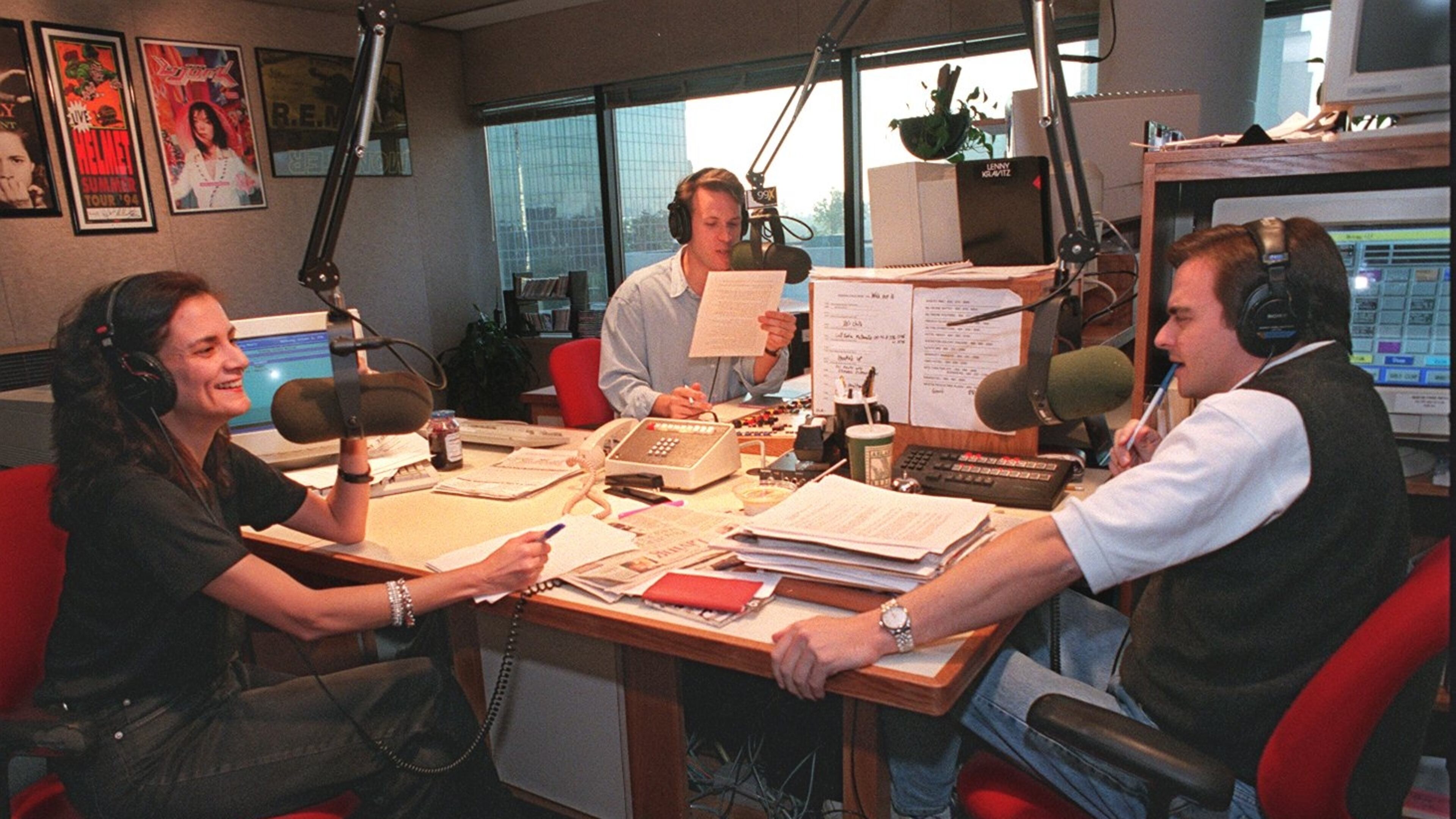
Posted Wednesday, October 25, 2017 by RODNEY HO/rho@ajc.com on his AJC Radio & TV Talk blog
Before Spotify, YouTube and Pandora, rock fans in Atlanta lived by 99X, a station that both personified and defined Generation X.
The station for much of the 1990s into the early 2000s blended cynicism with amusement, juvenile pranks with community service, and obnoxiousness with social consciousness.
Today, what constitutes 99X is now on a low-wattage signal at 98.9 FM with no live jocks and mostly current rock music. But management is turning back the clock Thursday, October 26, reuniting the once popular “Morning X” team of Steve Barnes, Leslie Fram and Jimmy Baron for a four-hour nostalgia fest from 6 to 10 a.m. That night, 99X is hosting a free concert at Live at The Battery Atlanta with 99X staple acts Shawn Mullins and Drivin’ N’ Cryin’.
>>RELATED: The Morning X reunites 25 years later recap
The station's launch was unusual, to say the least. In 1992, Power 99 was losing steam as listeners found the mix of Color Me Badd, Ugly Kid Joe and Hammer less than enticing. "The product flow," said Sean Demery, afternoon host, "got crappy."
Power's general manager had just died of cancer, so there was a void in top management. "The old guys at Susquehanna (which owned 99X and were based in York, Pa.) wanted to change the name of the station and soften the music, which had too much rap for their taste," said then-music director Rick Stacy.
At first, they were willing to just modify the music, but at 1 a.m. before the shift, Demery called Stacy in a panic. He said it wasn’t enough. They decided on their own — with help from then-assistant program director Fram — to dump 70 percent of the playlist and start anew with their own favorites, grabbing CDs from their own collection.
Stacy, 30 at the time, took a lot of heat going against the bosses’ wishes. “I don’t regret doing it, but at the same time,” he said, “I wish I was more of an adult about it.” (He lost his job a few months later with no severance.)
They tapped into what they saw in the local record stores at the time: Gen Xers were hankering for the likes of Nirvana and Pearl Jam.
So on the morning of Oct. 26, 1992, Demery, Fram and Stacy spent six hours explaining the pending format change to listeners. At noon, to the Buggles' "Video Killed the Radio Star," Power 99 was no more. Instead of Boyz II Men and TLC, 99X spun Ned's Atomic Dustbin, Soul Asylum and Faith No More.
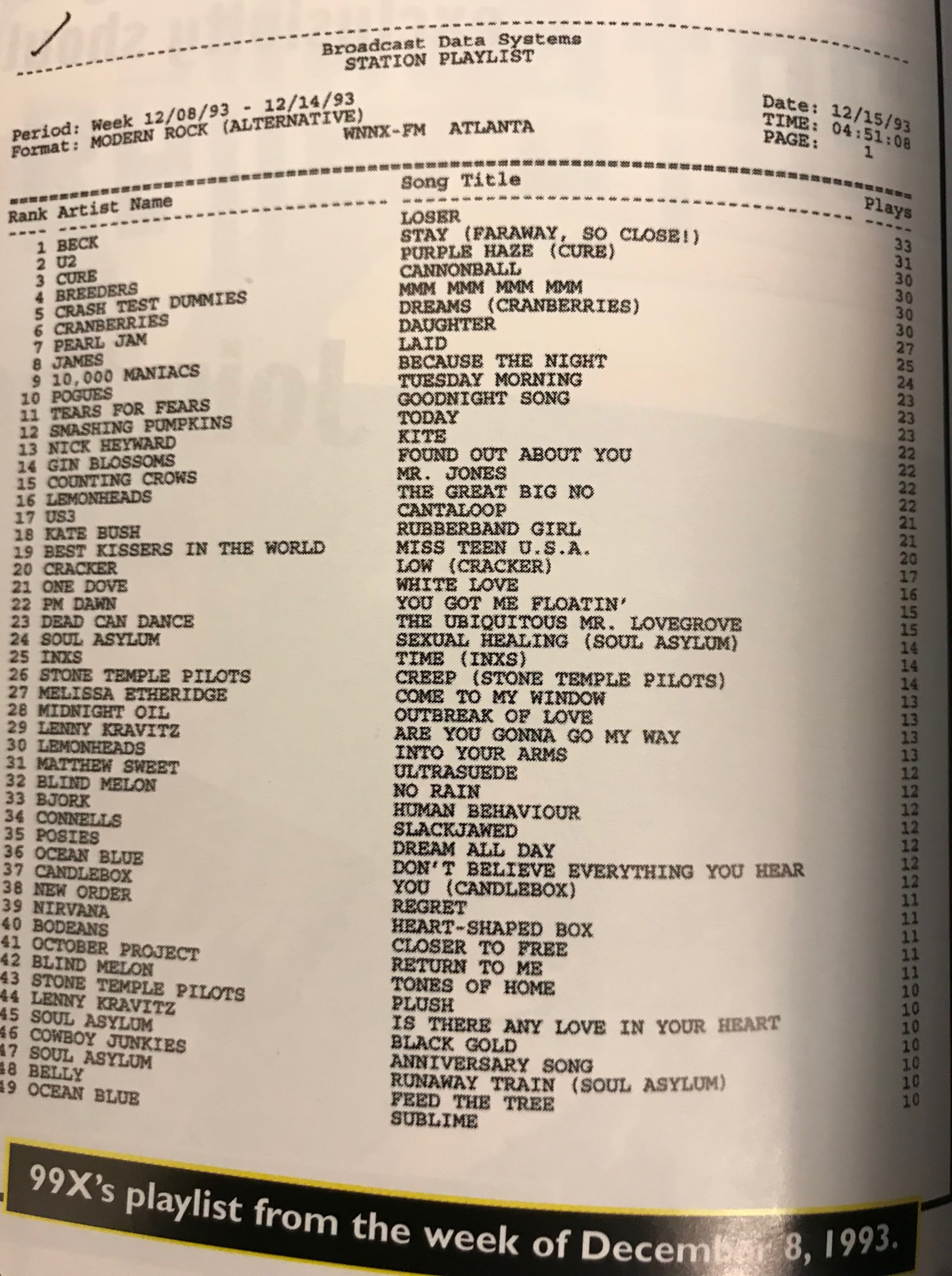
It took only a few months before Gen X listeners seeking that type of music embraced 99X’s insouciant attitude, a breath of fresh air to the testosterone-heavy, beer-guzzling imagery of rival 96rock.
"99x was like a petri dish. It grew up with these fantastic weird tangents the audience allowed us to go," said Brian Philips, who became program director in 1993.
He created “The Morning X,” blending three personalities that somehow worked despite — or because of — the natural friction. The often-testy Barnes would often square off against wise-cracking Baron. Fram would play mediator and voice of reason. “You have to remember,” Philips said. “This was the era of ‘Seinfeld.’ We didn’t think everybody had to be cushy and lovable.”
They could interview Danny DeVito one minute, astronaut Alan Shepard the next. It became the place to go for celebrities, from Elton John and Paul McCartney to the Dalai Lama and Tony Bennett, who did a concert for the station.
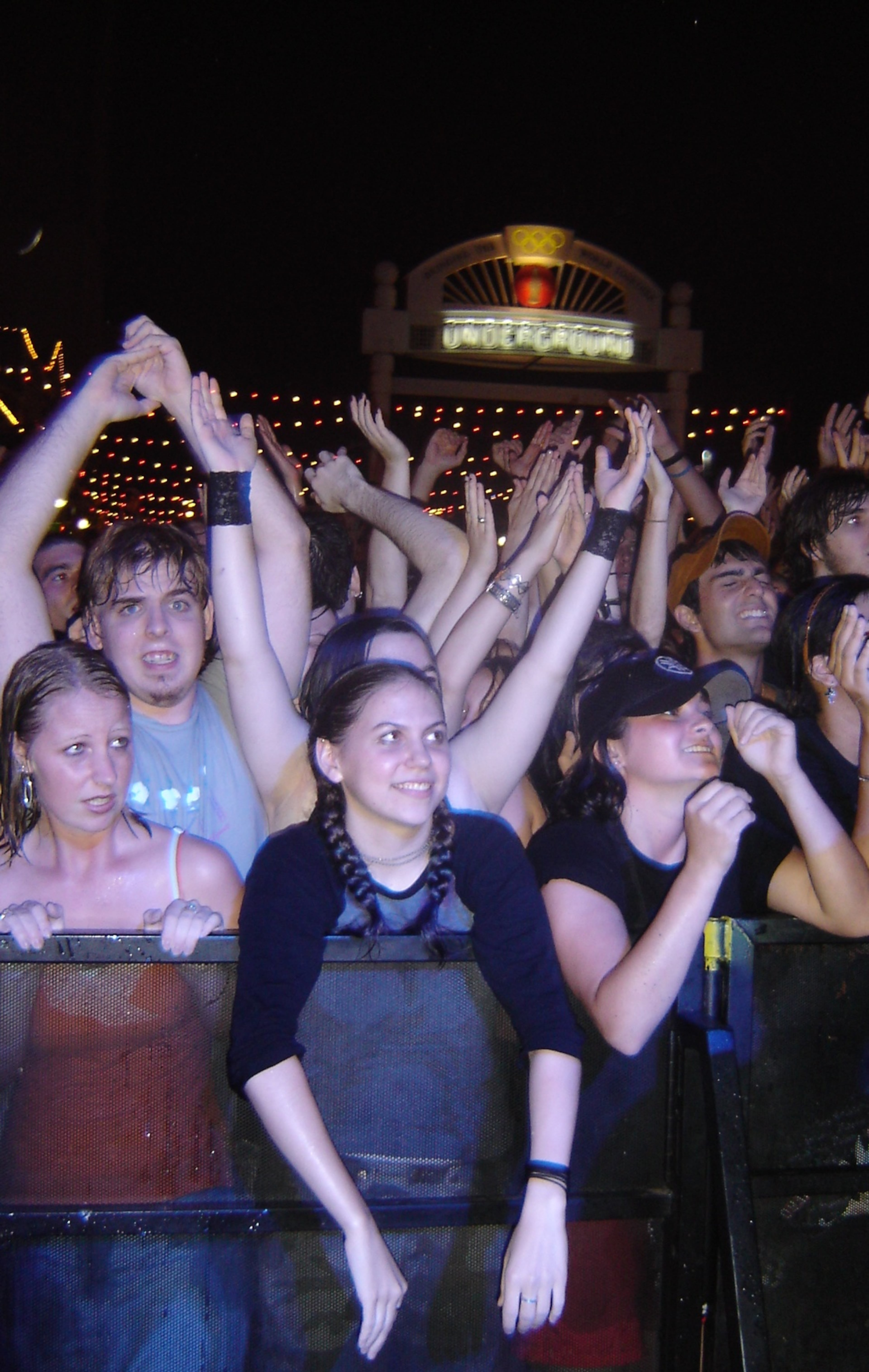
99X introduced the Freeloader card, enabling listeners to get discounts from local eateries and businesses, building a database of more than 600,000 people. It was one of the first local stations to start a website. It ran its own monthly magazine, 99XPress. It hosted an annual concert that drew tens of thousands called the Big Day Out. Its Live X CDs raised tens of thousands of dollars for charity. The station helped build up local artists like John Mayer and Collective Soul.
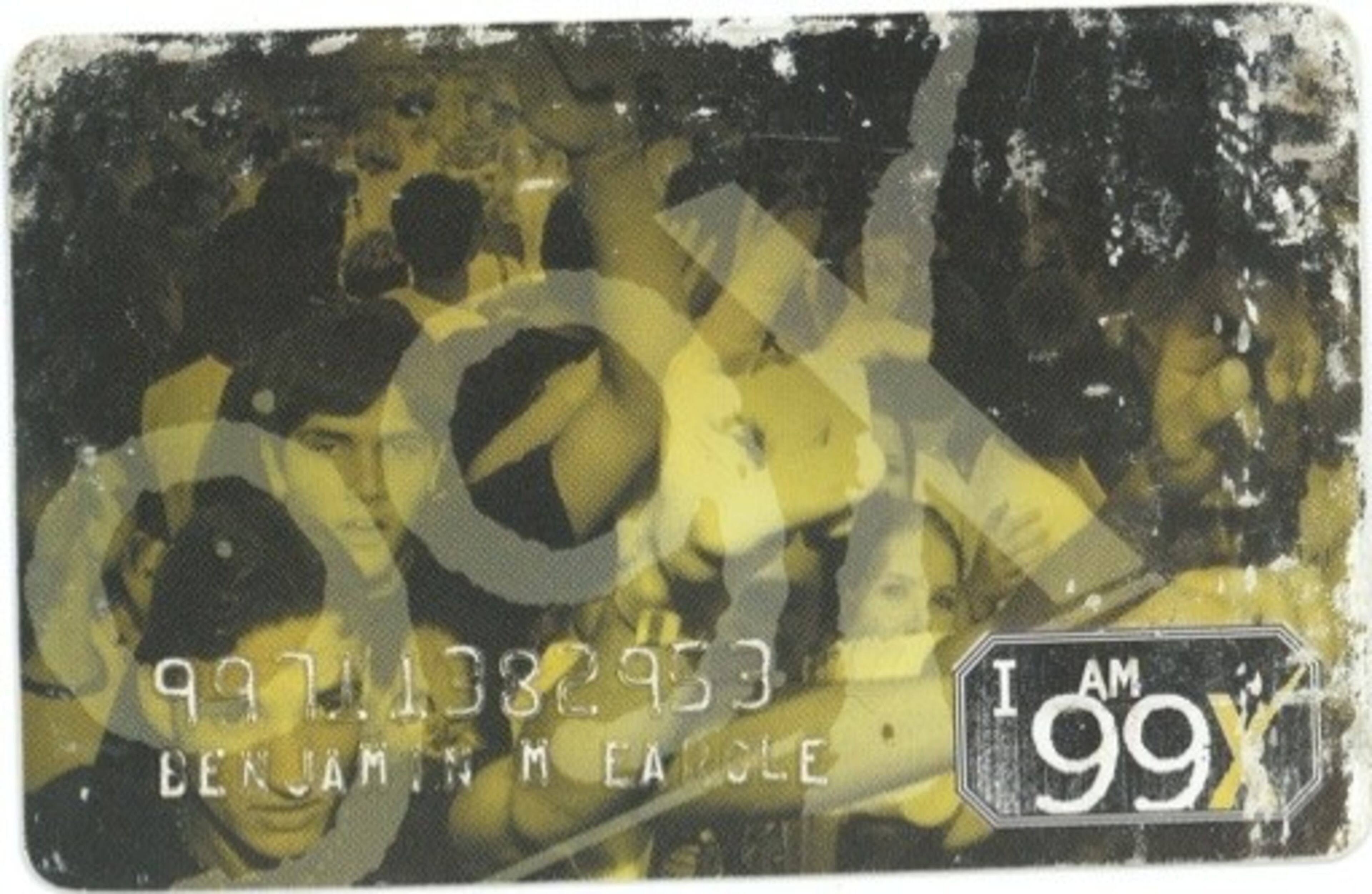
With Fram at the helm, the station was also surprisingly female-friendly for a rock station, willing to support the softer sounds of Sarah McLachlan, the Dave Matthews Band and the Indigo Girls. And it was the first station to show up at Pride Atlanta as well as hire openly gay personalities such as Melissa Carter and Yvonne Monet. (For a time, the station's slogan was literally "No labels.")
By the late 1990s, the station was billing almost $20 million a year, up from $7 million in 1992. But then the music became darker, more grinding with acts such as Limp Bizkit,Marilyn Manson and Creed.
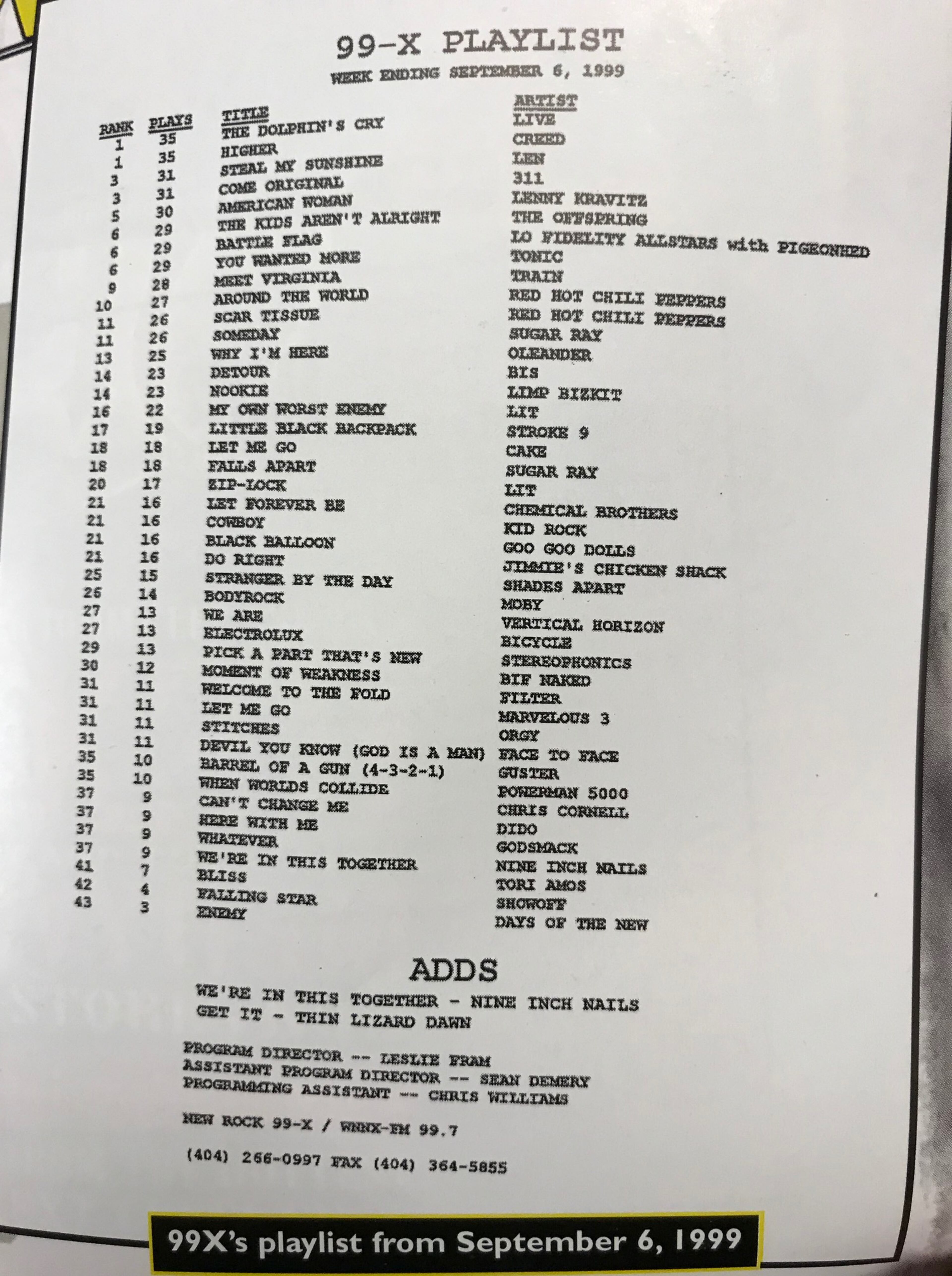
Chris Williams, who took over as program director in 2001, battled his boss Fram over the station's musical identity and direction. He wanted the station to stay young even if it meant sacrificing some older listeners. Fram didn't like that idea. So they straddled the fence, trying to appeal to both. In the end, Williams said, that backfired.
“Once you lose the perception of being cool, you’ve lost it,” Williams said. “It’s a challenge to get that back.”
He lost his job in 2004 but two years later developed the station he wished 99X had become, dubbing it Project 96.1.
In the meantime, 92.9 switched from classic rock to an adult alternative sound in 2004 dubbed Dave FM, which stole many of 99X’s original listeners. And Project sliced off many of 99X’s younger listeners. By 2008, new owners Cumulus pulled the plug on the station completely.
"There was a soul to 99X, and it kind of went away when Cumulus took over," said Jay Harren, music director from 1997 to 2006. "People sensed that."
Although 99X as a name has returned with a mission to expose listeners to new rock music, its Gen X fan base has long splintered, many probably now listening to Radio 105.7 or streaming services.
“Looking back, we had no idea it was going to be as big as it is now in memory,” said Steve Craig, 99X midday host from 1992 to 2008 and now morning host at The River (97.1 FM). “It’s overwhelming. We did a crap load of stuff with that station. People still talk with a lot of passion for what we did. It’s good to know we made a difference.”


